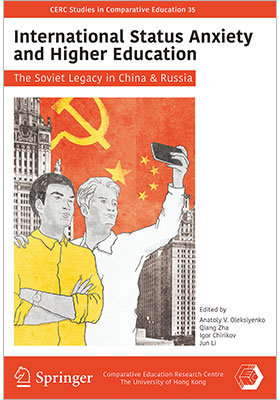International Status Anxiety and Higher Education
The Soviet Legacy in China and Russia
ISBN : 978-988-14241-6-7
Distributed for The University of Hong Kong
September 2018
424 pages, 6.5″ x 9.5″
- HK$250.00
This volume provides a critical perspective on the Soviet legacy of superpower competition in the higher education systems of China and Russia. The book examines the tensions among multi-level forces that strive to advance progressive university policies and practices on the one hand, and on the other hand work to restore old-style hyper-centralization and indoctrination. It tracks the de-Sovietization of higher education, which aimed to integrate Chinese and Russian universities into global higher education, but resulted in inducing status anxiety in the global hierarchies of knowledge development.
“We often forget that the Soviet Union was a major world power—and that it had great influence globally in many areas. This volume shows in detail how the Soviet legacy still has an impact on higher education in Russia and China. It is highly original and illustrates key realities in higher education.” —Philip G. Altbach, Research Professor and Founding Director, Center for International Higher Education, Boston College, USA
“This timely and meaningful book tracks the historical legacy and examines its lingering impacts on current higher education scenarios in China and Russia. It will help readers understand the impact of the changing global geopolitical system on the international knowledge order.” —Sheng-Ju Chan, Professor of Higher Education, National Chung Cheng University, Taiwan
“This path-breaking volume brings together outstanding scholars of Russian and Chinese education who provide profound insight into the challenges universities face in moving beyond the Soviet educational legacy and finding a place of integrity and excellence in the current global scene.” —Ruth Hayhoe, Professor of Comparative and International Education, University of Toronto, Canada
“The assembly of noted scholars in this book has taken on a subject of tremendous importance. The book illuminates the legacy of Soviet higher education in an increasingly status-conscious world of multipolar complexity and unprecedented technological acceleration.” —Gerard A. Postiglione, Chair Professor of Higher Education, University of Hong Kong
“The book vividly shows that under the knowledge-driven growth model and the global anxiety of competition, the two giant countries join the journey of status-seeking in higher education. Understanding the global implications of these endeavours is essential to understanding higher education in a globalized world.” —Jinghuan Shi, Professor of Higher Education, Tsinghua University, China

